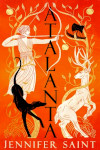Edith Wharton – The Age Of Innocence
Posted 23rd February 2018
Category: Reviews Genres: 1920s, Angst, Domestic, Drama, Social
3 Comments

Everything is awesome (caveat: when you’re part of the team)1.
Publisher: N/A
Pages: N/A
Type: Fiction
Age: Adult
ISBN: (Vintage’s is 978-0-099-51128-1)
First Published: 1920
Date Reviewed: 23rd February 2018
Rating: 5/5
1870s New York and young Newland Archer is excited at the prospect of marrying May Welland, looking forward to making their engagement official. But as he watches the opera in his club box, he spies a newcomer with his fiancée’s family; May’s cousin Countess Ellen Olenska has separated from her European husband and has come to stay in America. Ellen is rather different to the rest, her European ways at odds with New York society and everyone hopes she’ll reunite with her husband… everyone except Newland who is strangely attracted to her.
The Age Of Innocence is a marvellous novel with a highly ironic title. Set at a time of change, it looks at the way a society that does not favour the arts, or anything even one step away from their etiquette and mores, responds when they are confronted with a person who is slightly associated with it.
Wharton speaks of a society she was a member of and uses Newland to examine it as well. There is a lot of characterisation in the book but most of it is by rights and by design set aside for Newland. As the main character (the book is written in the third person) Wharton spends most of her time in his head. Her relative lack of characterisation of the other characters, barring Madame Olenska, is almost a theme in itself, with the society members effectively rendered as stereotypes as befitting Newland’s opinions of them, which, let’s just say, aren’t always correct (and can be frustrating at times). It’s an interesting sort of character-driven novel – there’s actually more plot than characterisation aside from Newland yet it remains character-driven.
In many ways everyone is a device for Wharton but none more so than the unsuspecting Newland who is used by Wharton to look at the perceived lack of female agency in society, as well as his own thoughts as to teaching his wife what he deems appropriate for her to know.
His own exclamation: “Women should be free – as free as we are,” struck to the root of a problem that it was agreed in his world to regard as non-existent. “Nice” women, however wronged, would never claim the kind of freedom he meant, and generous-minded men like himself were therefore – in the heat of arguement – the more chivalrously ready to concede it to them.
The young man was sincerely but placidly in love. He delighted in the radiant good looks of his bethrothed, in her health, her horsemanship, her grace and quickness at games, and the shy interest in books and ideas that she was beginning to develop under his guidence. (She had advanced far enough to join him in ridiculing the Idyls of the King, but not to feel the beauty of Ulysses and the Lotus Eaters.)… But when he had gone the brief round of her he returned discouraged by the thought that all this frankness and innocence were only an artificial product.
So the story is very clever. It’s a man’s world – is it? (You might expect a woman writer in those years to question that – Wharton and Kate Chopin would have got on well – but Wharton’s craftiness will have you wondering what’s on the next page constantly and she is a master of red herrings, nay, pre red herrings.) The author gives a lot of time to Ellen Olenska, ensuring that the woman shines in characterisation away from her role as Newland’s social interest, and allows a second interpretation to take hold in Ellen’s story. The execution of the story is flawless and the ending an absolute triumph.
At once a simple story with little embellishment, The Age Of Innocence is well worth the fairly short investment of time it requires, both for enjoyment and because it’s a worthy classic. You will not regret reading this book.
1 The main line of The Lego Movie theme song seemed too appropriate not to use, however irrelevant it is otherwise.
Related Books
None yet
February 23, 2018, 8:30 pm
Charlie, you make this sound great which is brilliant as I put this on my new Classic Club list. :-D
February 24, 2018, 1:09 am
Yayyyy I’m so glad you liked this! I want to read it and I’m going to keep an eye out for it at the book fairs I attend over the course of the year. I feel like 2018 is a good year for me to fall in love with Edith Wharton.
3 Comments
Comments closed























February 23, 2018, 7:10 pm
Oh how funny, Charlie, I just reviewed this last Tuesday!
Wharton has become one of my favorites and really knows how to get inside her main characters and their motivations. This one was quite the commentary on intimate relationships in the context of the wider society. And not very complementary :)